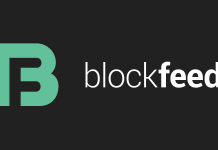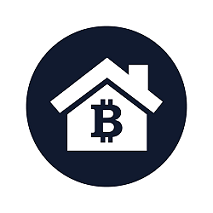https://www.youtube.com/watch?v=lNNLr2D0yig
After over 50,000 whitelist applications, the decentralized trading platform has announced the terms of their ICO and released details about their native token, KyberNetwork Crystals, which will be collected as fees from reserves, then destroyed.
SINGAPORE, August 25 – KyberNetwork, an anticipated decentralized exchange platform from the creators of Oyente and Smartpool, has officially announced the terms of their ICO and details about the functionality of their native token, KyberNetwork Crystals (KNC).
After receiving over 50,000 applications for their ICO whitelist, in the process becoming the largest Slack community in the world, the company has outlined their financial structure for the future, which is aligned towards long-term growth and viability as the crypto-asset industry matures over the coming years.
“It’s incredible and truly humbling to see the early support and enthusiasm we have received for KyberNetwork,” said Loi Luu, the company’s co-founder and CEO. “Our amazing team has a created a vision and a solid plan for integrating KyberNetwork with what we believe will be the fundamental framework of cryptocurrency trading in the future, and I think the crypto community has also recognized this.”
“With our KNC token and our ICO, we’re looking to build a strong, lasting community around KyberNetwork that encourages enthusiasts of the platform. Even if someone missed our whitelist registration, we feel like there is an opportunity with our ICO structure for everyone to participate as we build our technology and partnerships over the coming months and years.”
KyberNetwork is coming at a time when the ecosystem of crypto-assets is exploding in its diversity and sheer number of tradable tokens and currencies. As more and more projects raise funds through the launching of platform tokens, the number of tokens in the market is continuing to increase. However, the limited options to liquidate tokens in the market makes convertibility of one token to another token a new challenge for both investors and operators alike.
The platform will be the first to implement an exchange that includes trustless, decentralized execution with instant trading and high liquidity by using an innovative system that incentivizes reserve managers. The result is a platform that handles trading, payments, and complex financial transactions like derivative options and forward contracts, while also integrating as a payment API that allows wallets to receive payment from any crypto tokens.
KyberNetwork Crystals will be required by reserves to participate on their network and also used to reward 3rd parties that direct traffic and multiply trading activities on the platform. When a reserve operates on their platform a small KNC fee will be imposed in return for the right to operate and earn profits from trading activities.
Knowing the importance of partnerships to scale and improve platform adoption in the blockchain ecosystem, the company has also announced their commitment to collaborating with various organizations, including both software and hardware wallets, blockchain explorers, and on-chain smart contracts to direct users to the platform. As a reward for their efforts, these partners will be paid in KNC for every trade that they introduce to KyberNetwork.
All KNC tokens that KyberNetwork collects from fees, after paying any supporting partners, will be burned – i.e. destroyed and taken out of circulation, ceasing to exist, forever. With this model, KyberNetwork is introducing a unique asset that will increase in demand while decreasing in supply as adoption of their platform and technology grows over time, supporting their goal of rewarding all participants who help grow the network.
The company will raise 200,000 ETH at an initial exchange rate of 600 KNC to 1 ETH through their ICO, with roughly half having already been raised in a private round and the other half being offered evenly to every eligible whitelist applicants. The sale will then last 48 hours to enable everyone on the whitelist the opportunity to participate and also avoid clogging the Ethereum network.
KyberNetwork intends to use the proceeds of the Token Sale as follows:
● 50% to a reserve to be managed by KyberNetwork as a reserve operator.
● 30% for the development and maintenance of the platform service.
● 10% for the operation of and other costs related to maintaining KyberNetwork.
● 10% for marketing and legal costs.
In a statement, the company said:
“It is critical to have and maintain our own reserve in KyberNetwork as it guarantees the liquidity of the platform prior to the participation of third party reserves. Our plan is to first support the popular tokens like OMG, GNT, GNO and REP and a few others. At a later stage when cross chain protocols become more established, we plan to tokenize other cryptocurrencies (for example Bitcoin, Zcash etc.) on Ethereum to enable trades between ERC20 tokens and different coins. To be able to execute this component, a large initial capital is required in order to provide reasonable liquidity and trading volume. Hence the need for a reserve of 100, 000 ETH.”
KyberNetwork will only conduct one public sale of KNC, which begins on September 15. Click here to learn more.
To learn more about KyberNetwork visit: https://kyber.network
The KyberNetwork Whitepaper: https://kyber.network/assets/KyberNetworkWhitepaper.pdf
Twitter: https://twitter.com/kybernetwork
Slack: https://slack.kyber.network/
Github: https://github.com/kyberNetwork/
Medium: https://blog.kyber.network/
Interview with the Kyber team:
How can the reserve managers keep up in real time with exchange rates? Do they run the risk of underselling their tokens?
The reserve managers, with help from our reserve dashboard, will collect the view of the market from different exchanges to make their prices. The prices will be updated frequently, depending on the market movement, to guarantee that their prices are real time close to the current market rate.
See more: https://blog.kyber.network/how-to-run-your-own-crypto-exchange-cb7d7737904d
What is the difference between a reserve manager and a sell order?
Reserves guarantee with high certain that there is always liquidity for the tokens. There are only a few reserves for each pair of tokens, which will be vested by the operators (i.e KyberNetwork), to reduce the scalability constraint to maintain the exchange on-chain.
Can the tokens of a reserve manager be re-used?
Once the tokens within the portfolio of a reserve manager are released, the token that was offered will be deposited to the reserve manager’s portfolio. As such, the transfer of ownership of tokens prevent reserve managers from re-using a said token.
How are the tokens of reserve managers secured?
KyberNetwork does not hold the tokens of reserve managers that are part of KyberNetwork entity. The tokens will only be released to an acquirer or user from of the reserve manager’s portfolio when there is a transaction, and the transaction is executed by smart contract.
The reserve managers, in the early stage of the platform, will be the owners of the reserves themselves. We are working on a model in which anyone can nominate themselves to be a reserve manager and ask for contributions from public. There will be several rules/ constraints to protect reserve contributors from a bad reserve manager who quotes bad prices or steal tokens from reserves. The same problem is currently explored by MelonPort with their MelonFund module.
More details on how reserves are managed are available in our recent blog post.
What are the incentives of Kyber operators?
Kyber operators’ main tasks are to perform vesting/ background check to reserves, list/delist token pairs. The operators will initially be KyberNetwork developers who have high incentive to well
maintain the platform. In the future, we may envision other decentralized voting protocol to elect network operators in Kyber Network.
Who will choose operators?
As mentioned above, the operators will be KyberNetwork developers initially.
On what basis will operators choose reserve managers?
The operators do not choose reserve managers. Only the reserve owners can decide who should be their reserve managers. The operators only check if the reserves have enough liquidity before
they accept the reserves in the platform.
If there will be different operators, how will users select which operator to use?
Initially, there will be one single operator. In the long run, there will be a built-in voting protocol in the contract should there are more than one operator in the network. The users do not have to select which operators to follow.












